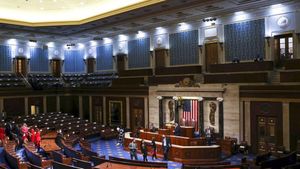Pension reforms are on the horizon for the UK, led by Chancellor Rachel Reeves, as the government seeks to consolidate local council pension funds. The plan, which aims to create large-scale pension funds, often referred to as "megafunds," is included in the upcoming Pension Schemes Bill slated for next year. This initiative promises to amplify investments and streamline the pensions market, unlocking approximately £80 billion for infrastructure projects and business growth.
During her recent Mansion House speech, Reeves emphasized her commitment to driving economic growth through this ambitious overhaul of the pensions framework. "I’m going for growth," she remarked, outlining how the reforms would tackle the fragmented nature of the current pensions system and facilitate increased investment.
The focus of these reforms will be on taking 86 local government pension scheme authorities and merging their defined contribution (DC) schemes. By pooling these assets, the government believes it can leverage economies of scale to boost returns for pension savers. Analysis has shown pension funds start to yield greater productive investment levels when managed assets reach between £25 billion to £50 billion, making the case for larger funds.
The rationale behind this push aligns with practices observed in other countries like Canada and Australia, which have successfully implemented similar models to maximize domestic investments. Jon Greer, head of retirement policy at Quilter, shared insights indicating Canada’s challenge with suitable domestic projects, highlighting potential difficulties even for large-scale funds.
Despite the promising outlook, some experts have raised valid concerns about the scale of these megafunds. Sir Steve Webb, former pensions minister and current partner at consultancy LCP, cautioned, "Big isn’t always beautiful. There are smaller pension schemes which are performing quite well and providing decent pensions for their members." He stressed the importance of prioritizing member interests over sheer size, asserting it would be detrimental if smaller, well-functioning plans were overshadowed by the new consolidation push.
Webb's views reflect the broader debate about the benefits of large versus small pension funds. While the idea is to create funds capable of making substantial investments, the question remains: will this approach benefit individual savers? Concerns loom about competition – will the formation of megafunds homogenize options available to pensioners instead of providing diverse, competitive offerings?
The financial oversight of these megafunds is addressed through rigorous regulatory standards, requiring authorization from the Financial Conduct Authority to protect savers' interests.
Beneath these reforms is the recognition of current economic pressures faced by businesses stemming from increased costs, including the £26 billion hike in employers’ national insurance contributions due next April. These economic factors also drive the urgency for reform.
Towards private sector pensions, the government plans to introduce minimum size requirements for defined contribution schemes, which reflect the need for similar consolidation efforts seen within local government funds. Such changes could impact the management of around £800 billion currently held within these schemes, which serve millions of workers across various industries.
Experts, including Tom Selby, director of public policy at AJ Bell, expressed skepticism about the government's plans. He remarked, "There’s concern the needs of the saver will be sidelined. This project merges not just funds, but the broader goals of economic growth and individual retirement outcomes; this duality carries risks, needing careful navigation. The fundamental objective should always be maximizing returns for those saving for retirement."
These reforms could pave the way for unprecedented changes in how pensions are managed, yet the government and stakeholders must tread carefully to balance growth ambitions with the financial security of individuals contributing to these funds.
The anticipated merger of local pension schemes highlights the broader evolution of the UK’s pension structure. The aim is not entirely new; ten years ago, calls for similar consolidations were made, underscoring the evolution rather than revolution of thought surrounding pension fund management. Phase one has finally gained traction, but it remains to be seen how it will unfurl.
Moving forward, the success of these megafunds, both politically and financially, will fundamentally rely on materializing benefits for the member. The balance to strike will continue to provoke debate among policymakers and pension industry veterans alike.
It’s undeniable—the biggest transformation yet to British pension systems is underway. The results could redefine how pension schemes operate, create investments to stimulate the economy, and perhaps most critically, influence the quality of retirement for millions.



